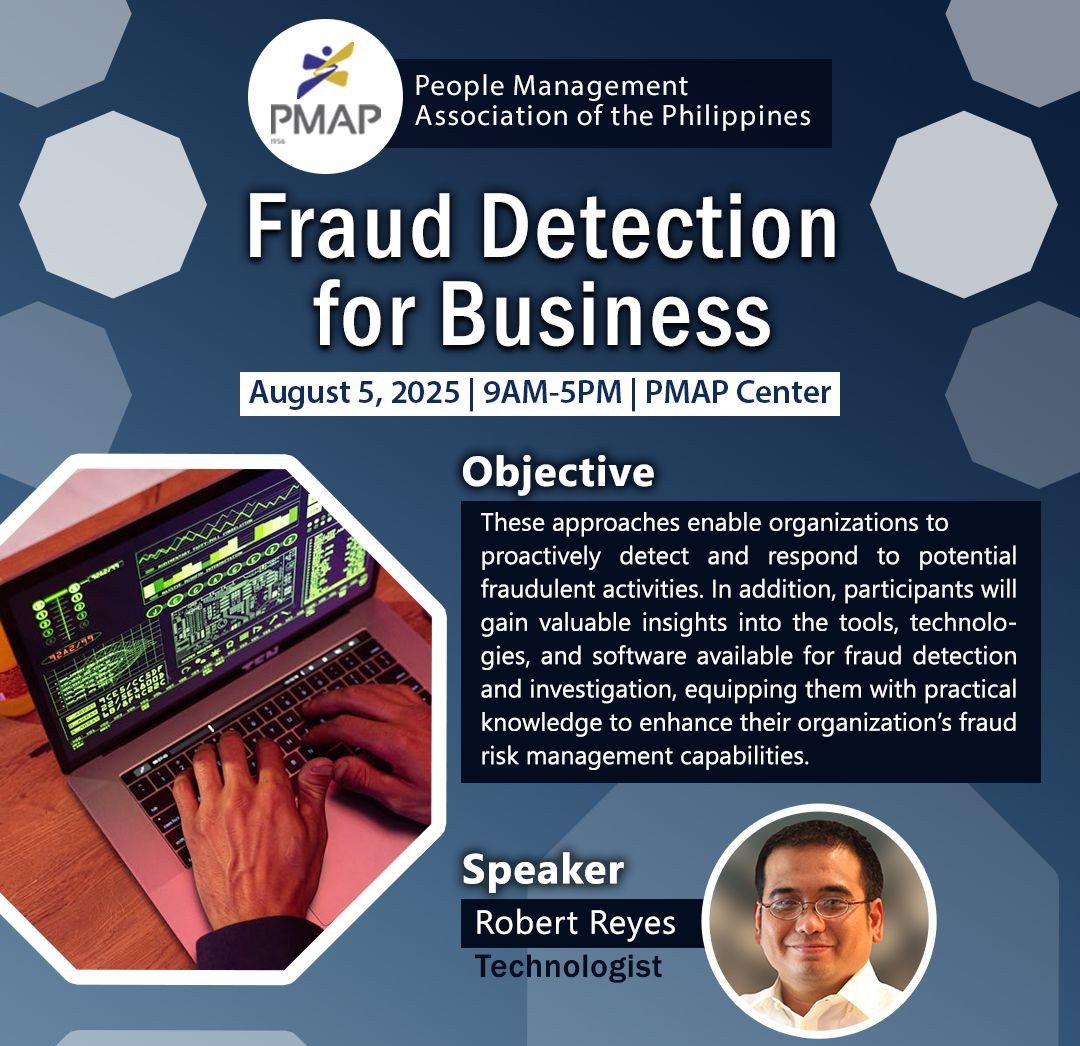Fraud Detection for Business

Event Date:
August 5, 2025
Event Time:
9:00 am
Event Location:
PMAP Center
Date: August 5, 2025 Time: 9:00 AM – 5:00 PM
Venue: PMAP Center, Mandaluyong City
Fee: Php 5,00.00 + 12% VAT – Member | Php 6,000.00 + 12% VAT – Non Member
Training Inclusions:
Training certificate, handouts
Overview:
Fraud Detection for Business explores the importance of implementing strong internal controls to mitigate the risk of fraud. The course also introduces participants to the use of data analytics in fraud detection, focusing on techniques such as identifying anomalous patterns and leveraging predictive modeling.
Objectives:
These approaches enable organizations to proactively detect and respond to potential fraudulent activities. In addition, participants will gain valuable insights into the tools, technologies, and software available for fraud detection and investigation, equipping them with practical knowledge to enhance their organization’s fraud risk management capabilities.
Key points:
Introduction to Fraud Detection
- Definition of fraud
- Importance of fraud detection for businesses
- Overview of common types of business fraud
Understanding Fraudulent Behavior
- Motivations and factors for committing fraud
- Red flags and warning signs of fraudulent behavior
Data Analytics for Fraud Detection
- Overview of data analytics techniques
- Identifying anomalous patterns and transactions
- Using predictive modeling and machine learning for fraud detection
Fraud Detection Tools and Technologies
- Introduction to fraud detection software
b. Using data visualization tools for fraud analysis
c. Incorporating artificial intelligence in fraud detection systems
Establishing a Fraud Prevention Culture
- Creating a strong ethical framework
- Developing a code of conduct and anti-fraud policies
- Promoting whistleblowing and reporting mechanisms
Implementing Internal Controls
- Segregation of duties
- Authorization and approval processes
- Physical and logical access controls
- Reconciliation and review procedures
Investigating and Responding to Fraud
- Establishing an effective fraud investigation process
- Conducting interviews and gathering evidence
- Legal Considerations in Fraud Cases
- Reporting and taking corrective actions
Fraud Prevention Best Practices
- Employee education and training
- Continuous monitoring and auditing
- Engaging external auditors and consultants
- Keeping up with evolving fraud trends
All training programs are subject to change. Ask about PMAP member rates and pre-registration for the topics you are interested in.
For registration and inquiries, you may contact Ms. Kristin Austria at kristin.austria@pmap.org.ph